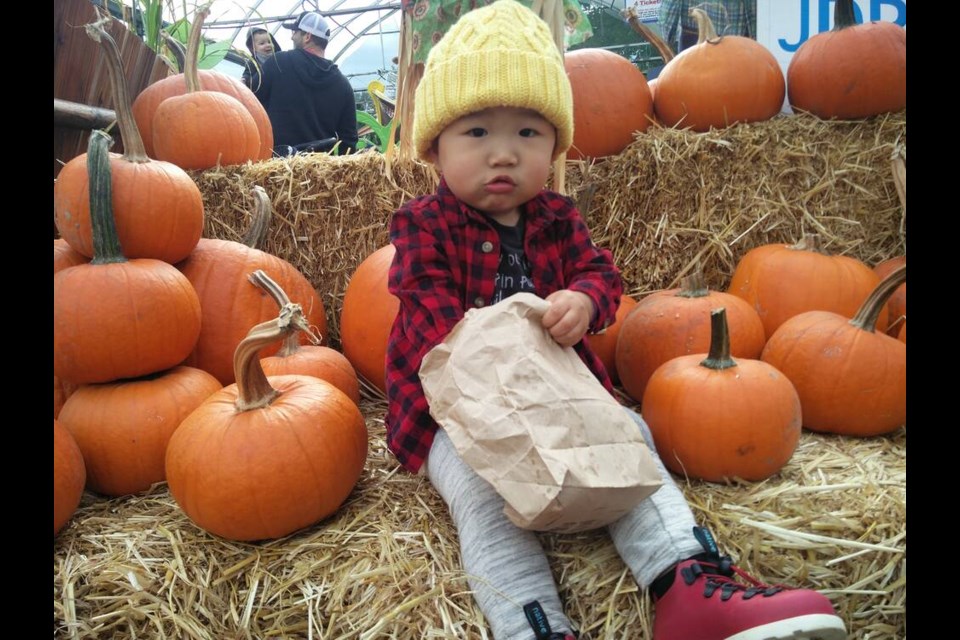Birthday parties used to be minefield situations for nine-year-old North 麻豆传媒映画resident Emerson Gee.
Diagnosed with a severe allergy to nuts as an infant, the threat of accidental contamination was omnipresent.
Now free from the constant fear of anaphylactic shock, Emerson and mum Anita Gee are lauding the Food Allergy Immunotherapy (FAIT) program at BC Children’s Hospital in Vancouver.
“It’s been absolutely life-changing, it’s the only word for it,” said Gee, who has also worked at BC Children’s Hospital for 15 years as a nurse.
“He can go have fun with his friends. He can eat the foods he enjoys. He can be a kid again.”
Emerson was just over a year old when he was diagnosed with a severe allergy to walnuts and pecans.
For years, the only advice doctors would give to Gee and her husband would be to avoid the allergen and carry an epi-pen, leaving both “scared and anxious,” on high-alert, and wary of leaving their son in the care of anyone but themselves.
When Emerson was three, a bowl of open nuts at a friend’s birthday party and a curious hand would result in a stint in the ER, and an introduction to the Children’s Hospital’s Food Allergy Immunotherapy (FAIT) program.
The event came at a point where the family had been “willing to try anything,” said Gee, and Emerson officially started the program in 2020. He was introduced to a powdered form of walnut and pecan that would grow in small increments every couple of months. Each dosage increase was monitored by a nurse, and then continued at home under guidance, virtually as a result of the ongoing Covid-19 pandemic, by Gee.
Emerson was old enough at that time too to describe how he was feeling; barring the occasional bout of a scratchy throat, the dosages never brought on a reaction, said Gee.
“I felt very safe going up, and if we didn’t, if it was a little too much or too much itchiness for us at that time, we would just stay on that amount for a couple more months and let him let his body adjust to it more.”
In June 2022 Emerson was given the challenge of attempting a full walnut, an event that passed without incident. Now he no longer needs an epi-pen, and Gee doesn’t feel the anxiety she once had when her son would be playing sports or socializing with friends.
“It feels so good that if he went to eat with his hockey buddies after a practice, or go to his friend’s house after school, I don’t have that alert on him. That red flag that’s blazing on him,” she said.
“Now I can actually feel safe, and he can finally sit and enjoy the foods he likes, and enjoy his carrot cake with his dad and I.”
Gee said the family still keeps an epi-pen at home, but more as a caution “than a first line of defence.”
The program was such a success that later this year Emerson will be re-enrolled to attempt therapy for pollen and grass allergies, where, much like before, he will be exposed to the particular allergen in small increments to encourage his body to tolerate it.
“All families should have access to this program,” said Gee, adding how she hopes her story will raise awareness of the opportunities available for children facing life-threatening allergies.
She encourages anyone to participate in BC Children’s Foundation’s Dream Lottery, which raises funds for research initiatives at BC Children’s Hospital.
Running until Oct. 11, the winner of the grand prize draw can choose one of ten packages, from dream homes to over $2 million in cash.
“There’s more solutions out there. If your doctor tells you no, continue to ask or go get a referral to the allergy program at BC Children’s Hospital,” she said.
“Keep on finding solutions for your child, because they are out there.”
Tickets to The Dream Lottery can be purchased via the .
Mina Kerr-Lazenby is the North Shore News’ Indigenous and civic affairs reporter. This reporting beat is made possible by the .


